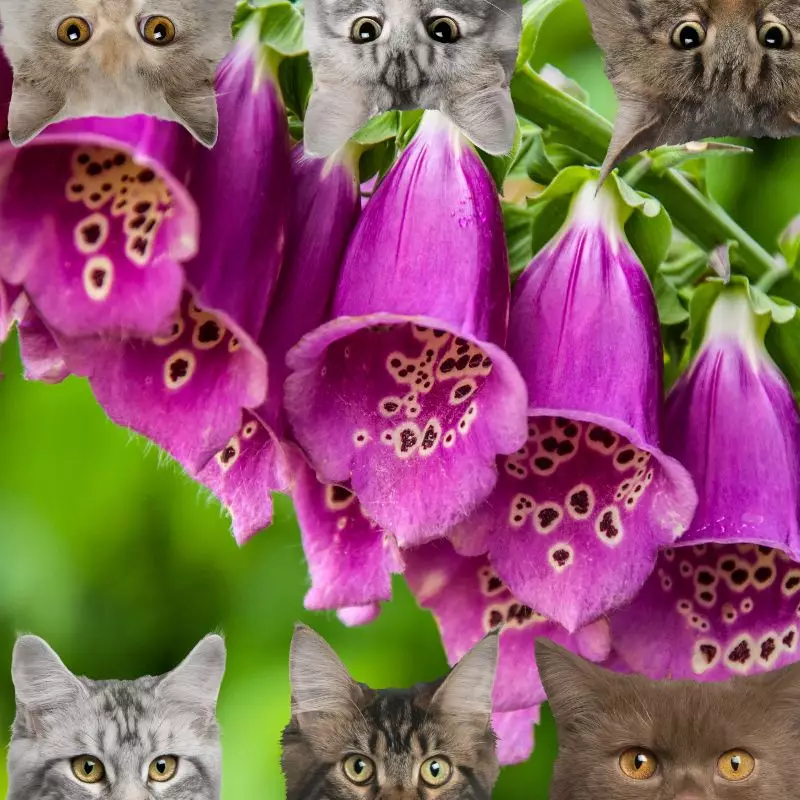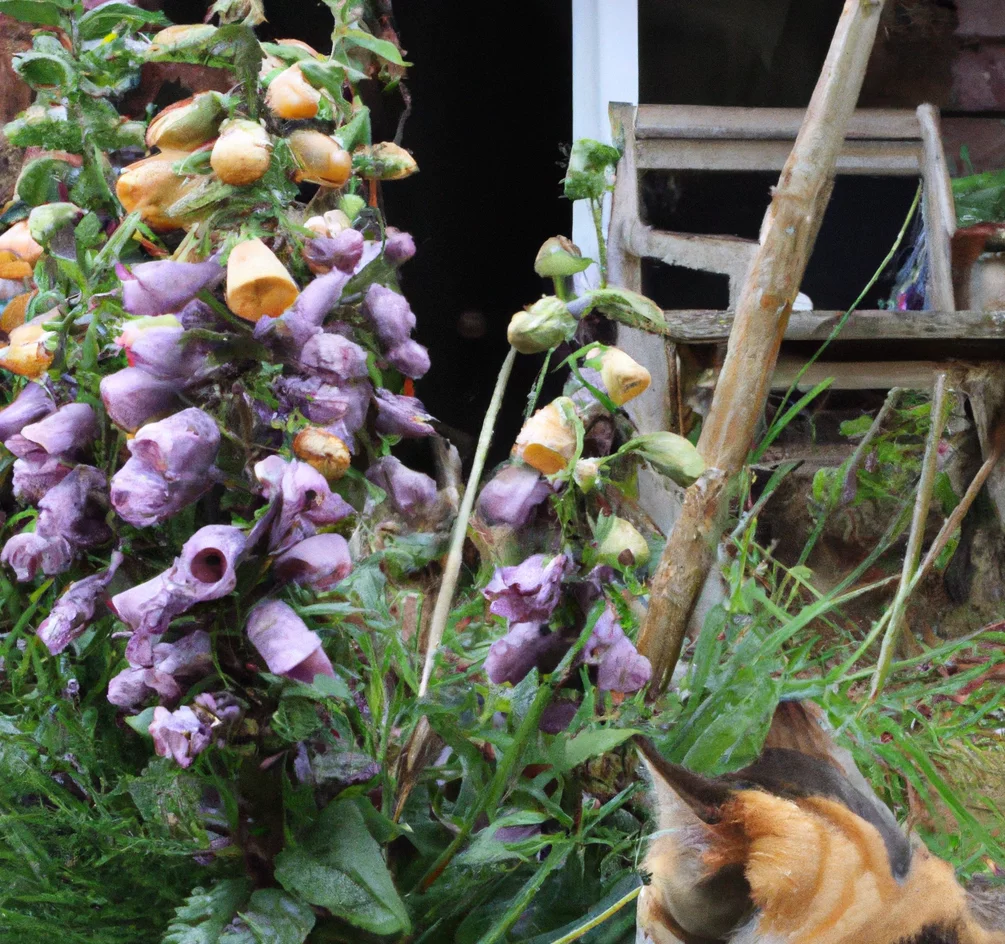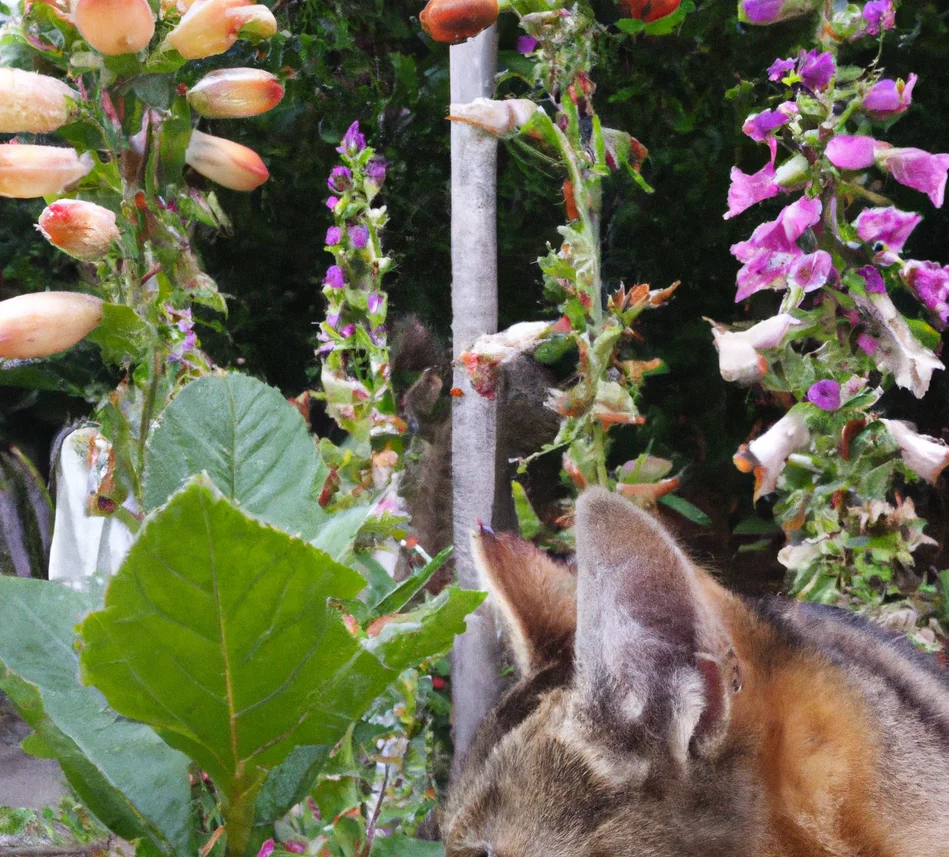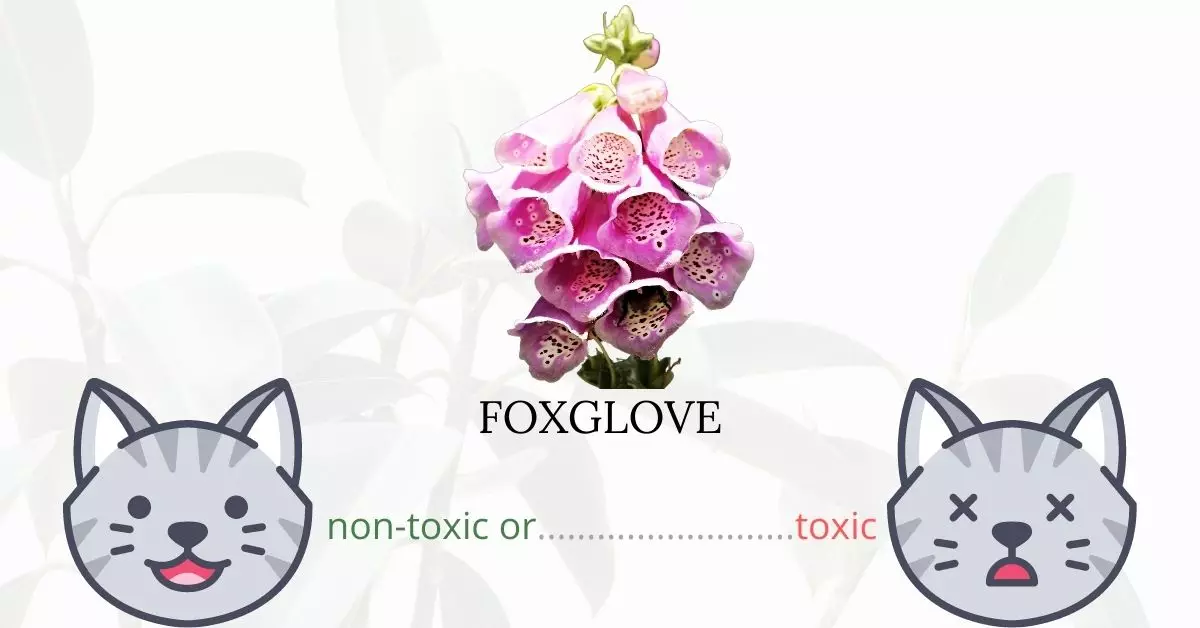Absolutely, foxglove is toxic to cats.
Written in collaboration with a team of experienced DVMs (doctors of veterinary medicine), this article provides accurate and up-to-date information on the potential risks associated with the foxglove plant and its effects on cats. Drawing insights from high-authority websites such as ASPCA and PetMD, we are able to give a comprehensive perspective on this topic.
Foxglove, while admired for its beautiful blooms, contains cardiac glycosides which interfere with the electrolyte balance of the heart muscles. As a result, ingestion can lead to symptoms such as vomiting, diarrhea, and cardiac arrhythmias in cats. Thus, households with cats are advised against growing this plant.
Clinical Signs of Foxglove Poisoning in Cats

Foxglove contains potent toxins that can seriously harm cats. Here’s a deeper look at each sign a cat may exhibit if it has come into contact with, or ingested parts of, the foxglove plant, and the reasons behind them:
- Nausea: The initial reaction of the cat’s body trying to expel the ingested toxin.
- Vomiting: A direct response to the irritation and toxic effects on the stomach. The body’s mechanism to remove harmful substances.
- Diarrhea: The body’s attempt to quickly eliminate the toxins from the digestive tract.
- Drooling: Excessive salivation can occur due to the irritation of the oral cavity and stomach lining by the toxins.
- Dilated pupils: Resulting from the toxins affecting the cat’s nervous system and causing overstimulation.
- Loss of appetite: Due to gastrointestinal discomfort and the body’s instinctual avoidance of further ingestion of harmful substances.
- Abdominal pain: The toxins can cause inflammation and irritation in the stomach and intestines.
- Abnormal heart rhythm & Irregular heart rate: Foxglove contains cardiac glycosides which interfere with the electrolyte balance of the heart muscles, leading to these cardiac issues.
- Seizures: Caused by the toxins affecting the brain and the nervous system’s function.
- Tremors: Resulting from the impact of the toxins on the nervous system, leading to involuntary muscle movements.
If you suspect your cat has ingested foxglove, it’s imperative to consult a veterinarian immediately. Addressing these symptoms early can help reduce the severity of the potential effects and improve the cat’s chances of a full recovery.
First Aid and Treatment of Foxglove Poisoning in Cats

The veterinarian will conduct complete physical examination and several laboratory tests such as a complete blood count, urinalysis, and biochemical profile to examine your cat’s overall health and kidney function. He may also monitor your cat’s heart rate by using an electrocardiogram and echocardiogram.
Managing symptoms will be also done which may include performing gastric lavage, administering activated charcoal and intravenous fluid therapy. The veterinarian may also prescribe medications as it may deem necessary in your cat’s condition.
Recovery from Foxglove Poisoning in Cats

If you were able to take your cat to the veterinary clinic promptly, he or she has a high chance of survival. Cats with mild cases of poisoning usually take 24 to 48 hours to fully recuperate. Make sure to talk to the veterinarian if there is supportive care that you need to give at home once your cat has been allowed to go home.
Prevention of Foxglove Poisoning in Cats
Foxgloves are common in gardens and yards and even if you remove them from your own garden, there is still a possibility of exposure to foxglove if your cat likes going outside. Limit your cat’s access outdoors to prevent this. It would also help if you can choose non-toxic plants instead for your home.
If you love plants but have cats at home, check out these lists:





